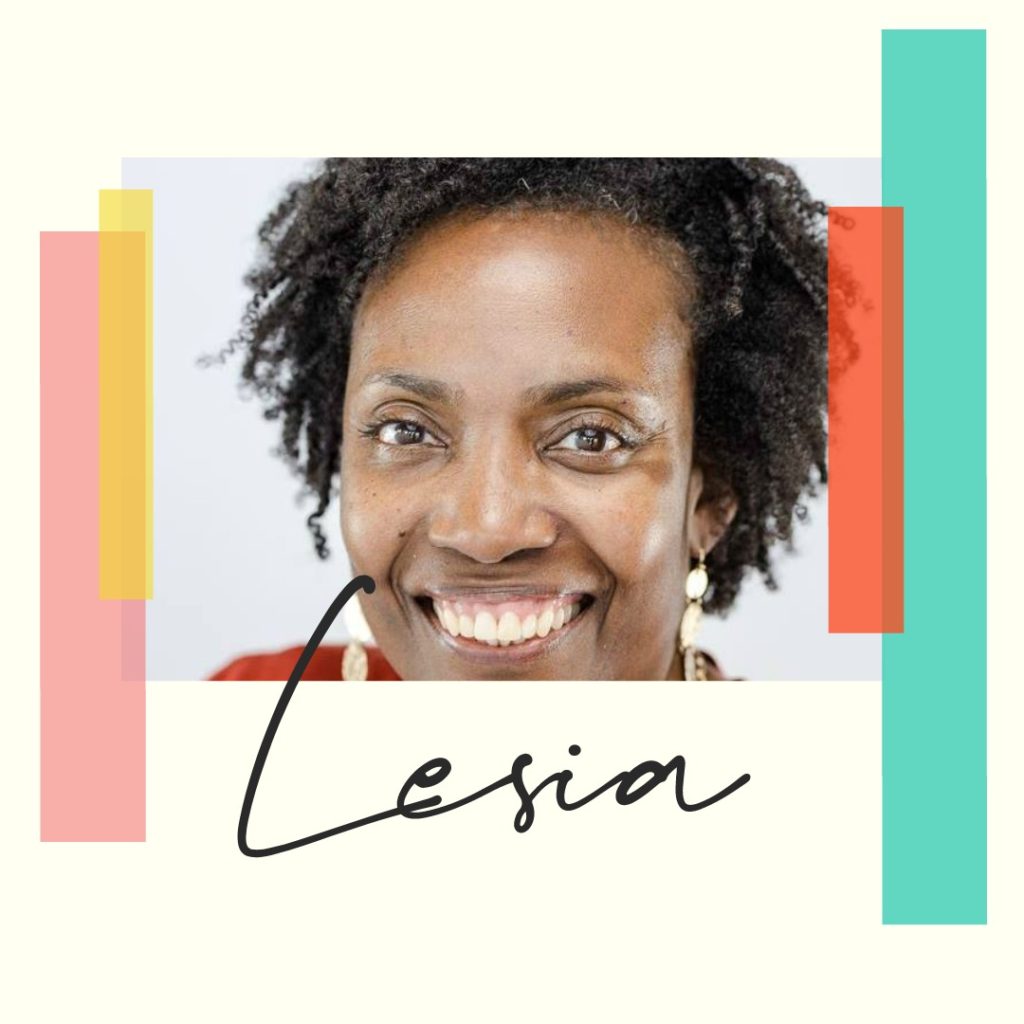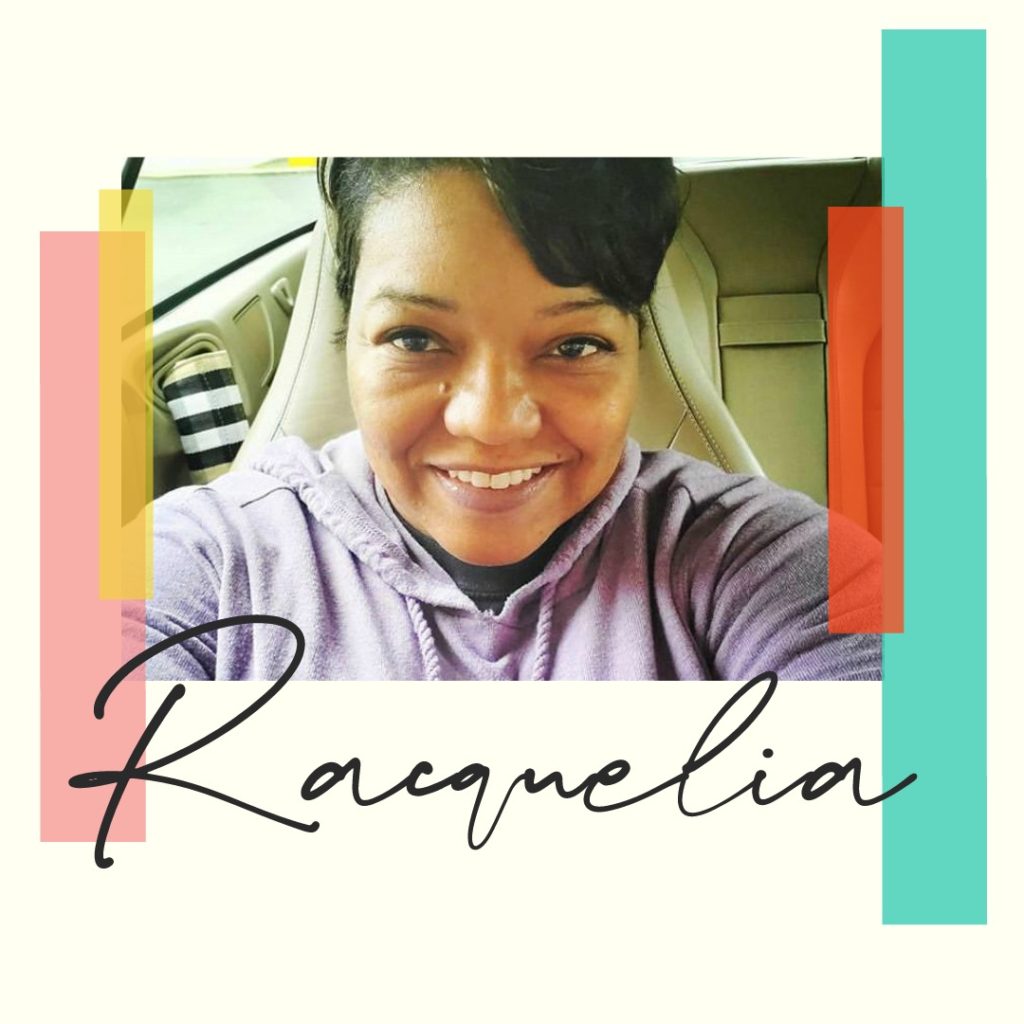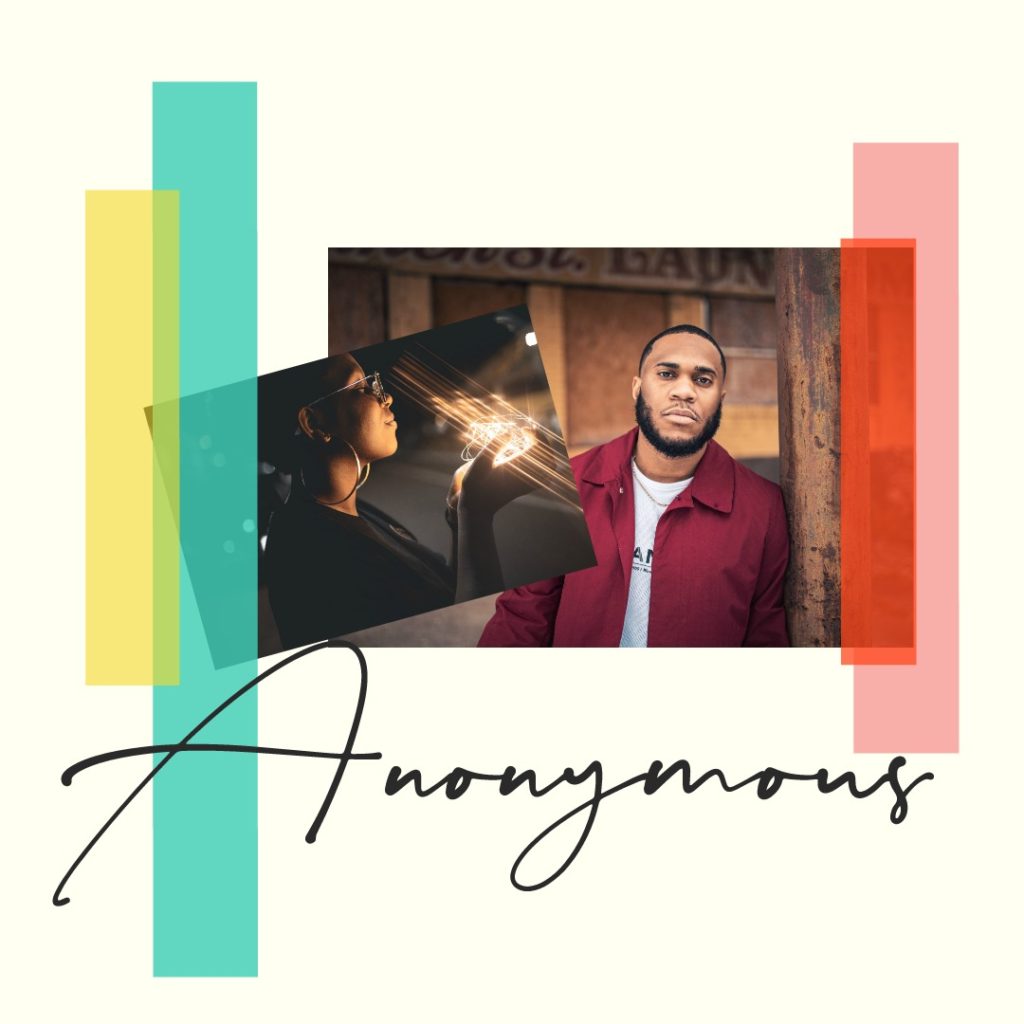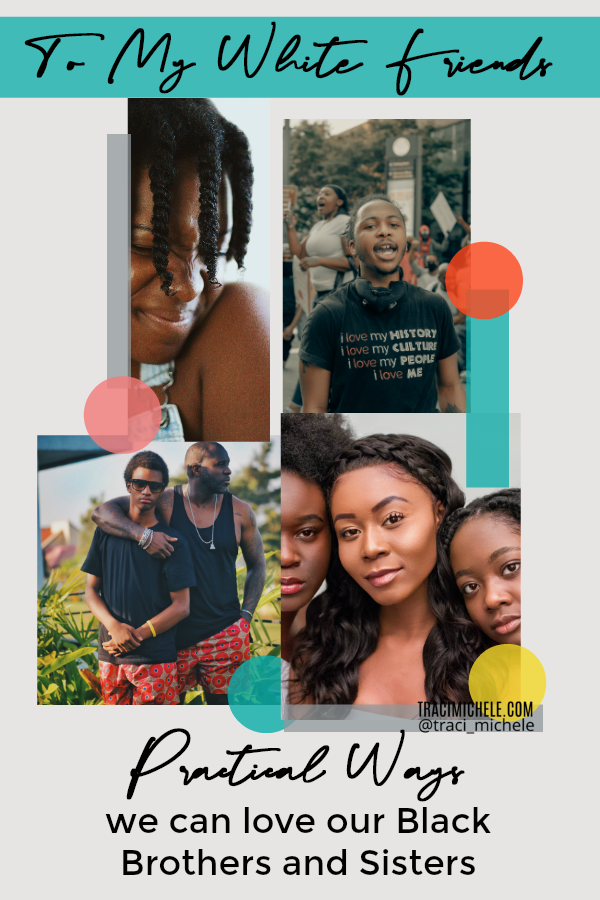This is Part 4 of a five day series: A Message To My White Friends- Practical Ways We Can Love Our Black Brothers and Sisters.
You can read Part 1 Here.
You can read Part 2 Here.
You can read Part 3 Here.

Lesia says,
I know these are tough times… stressful times… uncomfortable times, and the racial tension is Thick! I have friends with every shade of skin color; however, my “non melanin” friends were the ones to check on me. It’s not because my friends of color didn’t care, but because they have experienced racism in one way or another. I was very grateful for my friends who checked on me, but most of all I appreciated their honesty. Which brings me to my first way to support the Black community during this time.
Reach Out To Your Black Friends
Reach out to your Black/African American friends. Let them know you are there for them and are not afraid of the frustration and anger they might be feeling. If you don’t know what to say, then say that. I had two of my White friends call and say “I don’t know what to say. I feel sickened by what’s going on, but I don’t know what to say or do… tell me what I can do.” Then they listened. They were willing to listen to my anger, my fear and frustration without trying to console me or make me feel better, because they couldn’t. Allow us to feel how we feel and listen.
Acknowledge The Racism Elephant In The Room
Acknowledge the racism elephant that’s in the room. Acknowledge that there is a problem. To say that there is no racism is insulting and ignorant to the daily challenges for people of color. Even if you haven’t experienced it, please don’t minimize our experience. It would be better to not say anything than to make us feel like the situation doesn’t exist.
Take A Stand Against Injustice
Take a stand against injustice. You don’t have to protest if that’s not your thing, but you can take a stand when you see discrimination and racism in action. A simple intervention when someone is being verbally assaulted or step up and say something when racial jokes are being told in the break room. Any action that says, “we aren’t going to stand for this” will help fight the battle against racism.

Racquelia (Rocky), is the daughter of activist parents who grew up in Jim Crow South. Racquelia’s personal interest background started with a group based in Washington, DC that specialized in facilitating group and community conflict based on awareness practices. As part of the Benjamin Banneker Math & Science Honors Program in Montgomery County, MD, she formed a social awareness group where she taught the students how to facilitate small group conflict resolution. From 2011- 2014 she served on the Board of Directors and, is still an active participant in the Coming to the Table Program, Eastern Mennonite University which provides leadership, resources, and a supportive environment for all who wish to acknowledge and heal wounds from racism that is rooted in the United States’ history of slavery.
Dismantling anti-Black racism and violence is a personal responsibility of everyone.
Have Honest Discussions
Have honest discussions about how anti-Black racism is ingrained within your own community. While facilitating a race dialogue, the White participants pointed out something very profound to me– they envied the way Black people talk openly and earnestly about race with each other. They said at their own family gatherings, anti-Black racism is a taboo subject and they were afraid to bring it up for fear they would bring guilt or shame to others at the table. It was hard for me to believe that the same people who are dedicated to working on their own racism, who yell the loudest at protests and marches, who donate money to support anti-racism causes, could hide that part of themselves from their closest friends and family.
Small Changes Will Reap Big Changes Over Time
Because minds don’t change overnight, it’s hard to see the impact of dialogue in the shorter term but, conversations with family and friends are direct actions towards fighting anti-Black racism. Become an anti-Black racist ally, not just a bystander by donating money to legal defense funds dedicated to black people who are unjustly arrested, killed, or imprisoned; by supporting anti-racist organizations and charities either by becoming a member or, joining the protests to protect those on the front lines; by actively participating in campaigns for black politicians.
The opposite of racist is “anti-racist”. That’s not the same as not being racist. Most people think because they don’t participate in racist activity, they’re not part of the problem. It’s not enough to share articles, memes, images of anti-Black incidents then, move on to the next post. As an ally, it’s important to know the history behind systemic racism and to work towards correcting those systems.
Continue to Check Your Own White Privilege and Power
I’ve learned that guilt is the primary obstacle in someone’s personal journey to being a white ally. For example, sending sympathetic messages to black friends and family members after George Floyd’s murder is like using them as a dumping ground for guilt and shame. It puts the other person in a position of comforting, transfers responsibility. But, people don’t know that unless they understand their privilege of having the choice to learn/talk about racism, rather than living it.
So many people tell me they’re afraid of saying the wrong thing – read more, learn the terminology but, don’t be silent. Be open and willing to grow, be patient with yourself. There are many resources available to help people on their journey.

Christians Represent Christ
No matter our skin color, those that are Christians must remember that we represent Christ, not our culture. That means that I care about social justice, but I also care about holiness. I am angry about the racial tension in this country, but David said in Psalms and Paul said in Ephesians be angry and sin not.
Blaming & Holding Onto Hate Is Not Helpful
Blaming others and holding onto hate and unforgivness is not helpful to the cause of justice. Do things need to be changed, yes, but that change is a change of heart in accepting Christ, not painting people groups with a broad brush as all good or all evil. Blacks shouldn’t have to fear for their lives from a cop and whites shouldn’t have to apologize for sins they didn’t commit.

Some Anonymous voices say,
Engage with people of different races
Doesn’t have to be anything deep or serious but just engage with them. It’s the first step in my eyes to seeing people as equals.
Understand what it means to be racist and what it means to hold racial prejudice
Even if it means a webster-merriam definition, it’s a start in understanding.
Watch a bit of “black media”
As weird as it is, watching a movie or TV show that displays predominantly African American themes can be an eye opener into the culture. Old 90s films are great for that. Or even modern shows, like Black-ish. As an immigrant, I actually never really experienced a lot in terms of racism. I was made aware of it through media and after migrating and living here, it became something that I was fully aware of. “Black media” helped educate me, a black person, about all this.
Educate & Have Those Hard Conversations
I think we need to educate ourselves and have those hard conversations. There are loads of books out there now that can help us get a greater understanding of how others think. It is actually one of the steps I am currently taking. One of my son’s friends mom told me she read an article that stated that white boys should protect their black friends if cop comes around saying, “He’s with me.”
Build Relationships
I think the most important way is to build relationships with Black people.
Stop Racist Jokes
When someone makes a racist joke, let them know you’re offended.
Please come back tomorrow for the final day of this series!

